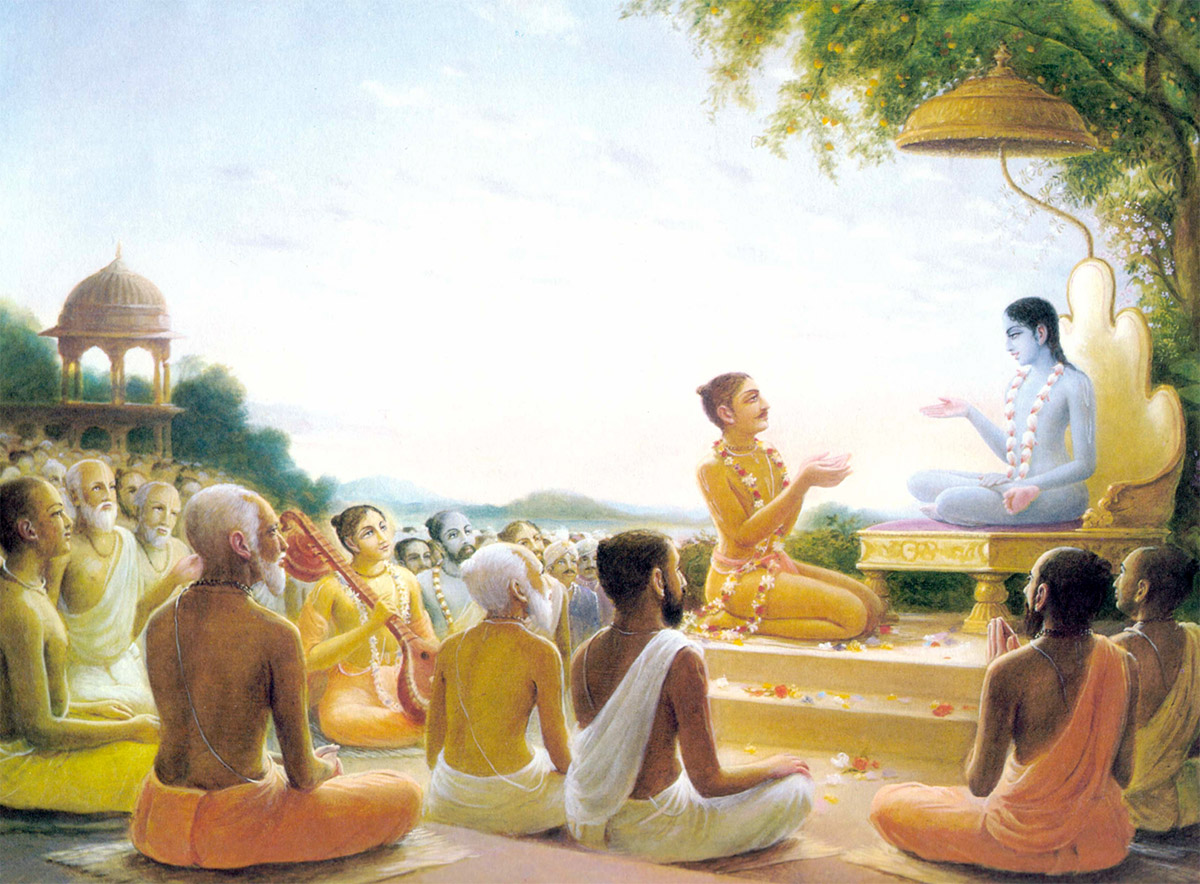“One generally follows different types of religious principles or performs various occupational duties according to the body given to him by the modes of material nature. In this verse, however, real religious principles are explained. Everyone should be unhappy to see others in distress and happy to see others happy. Atmavat sarva-bhutesu: one should feel the happiness and distress of others as his own. It is on this basis that the Buddhist religious principle of nonviolence–ahimsah parama-dharmah–is established. We feel pain when someone disturbs us, and therefore we should not inflict pain upon other living beings. Lord Buddha’s mission was to stop unnecessary animal killing, and therefore he preached that the greatest religious principle is nonviolence.
One cannot continue killing animals and at the same time be a religious man. That is the greatest hypocrisy. Jesus Christ said, “”Do not kill,”” but hypocrites nevertheless maintain thousands of slaughterhouses while posing as Christians. Such hypocrisy is condemned in this verse. One should be happy to see others happy, and one should be unhappy to see others unhappy. This is the principle to be followed. Unfortunately, at the present moment so-called philanthropists and humanitarians advocate the happiness of humanity at the cost of the lives of poor animals. That is not recommended herein. This verse clearly says that one should be compassionate to all living entities. Regardless of whether human, animal, tree or plant, all living entities are sons of the Supreme Personality of Godhead. Lord Krishna says in Bhagavad-gita (14.4):
sarva-yonisu kaunteya murtayah sambhavanti yah
tasam brahma mahad yonir aham bija-pradah pita
“”It should be understood that all species of life, O son of Kunti, are made possible by birth in this material nature, and that I am the seed-giving father.”” The different forms of these living entities are only their external dresses. Every living being is actually a spirit soul, a part and parcel of God. Therefore one should not favor only one kind of living being. A Vaisnava sees all living entities as part and parcel of God. As the Lord says in Bhagavad-gita (5.18 and 18.54):
vidya-vinaya-sampanne brahmane gavi hastini
suni caiva svapake ca panditah sama-darsinah
“”The humble sage, by virtue of true knowledge, sees with equal vision a learned and gentle brahmana, a cow, an elephant, a dog and a dog-eater [outcaste].””
brahma-bhutah prasannatma na socati na kanksati
samah sarvesu bhutesu mad-bhaktim labhate param
“”One who is transcendentally situated at once realizes the Supreme Brahman and becomes fully joyful. He never laments nor desires to have anything; he is equally disposed to every living entity. In that state he attains pure devotional service unto Me.”” A Vaisnava, therefore, is truly a perfect person because he laments to see others unhappy and feels joy at seeing others happy. A Vaisnava is para-duhkha-duhkhi; he is always unhappy to see the conditioned souls in an unhappy state of materialism. Therefore a Vaisnava is always busy preaching Krishna consciousness throughout the world.”
A.C. Bhaktivedanta Swami Prabhupada (2014 edition), “Srimad Bhagavatam”, Sixth Canto, Chapter 10 – Text 09
















Leave A Comment